An intern’s perspective on what we can learn from DreamWakers’ virtual career fair model
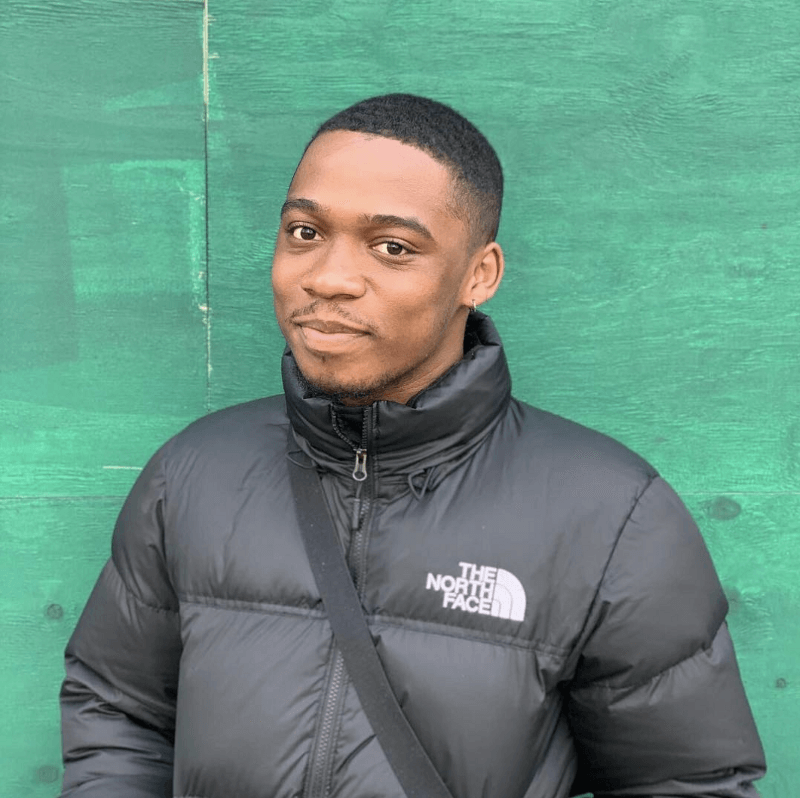
Do you remember your first Career Fair? I do. My teacher mailed a reminder home asking my parents to prepare my best “dress to impress” outfit. Rushing to class, I was invigorated, hoping to find that grown-up in my community who had that dream job that could possibly become my dream job. Professionals set up tables with banners and pamphlets in the cafeteria, and I had the unique chance to meet inspiring local business leaders. It was memorable. It was exciting. It was relevant.
Experiences like this that connect classrooms to real-world careers are powerful for students. What’s more, nearly two-thirds of American companies have positions for which they cannot find qualified applicants. By 2020, there will be a shortage of about 40 million highly-skilled workers worldwide (McKinsey Global Institute, 2015). Exposing students to career options from a younger age is critical. This is why we at DreamWakers work to harness the power of technology to create career connections at scale. One way we do this is by hosting Career Fairs of the Future — in other words, career fairs that are as digital as the world in which we live, where geographic barriers are overcome with the click of a button.
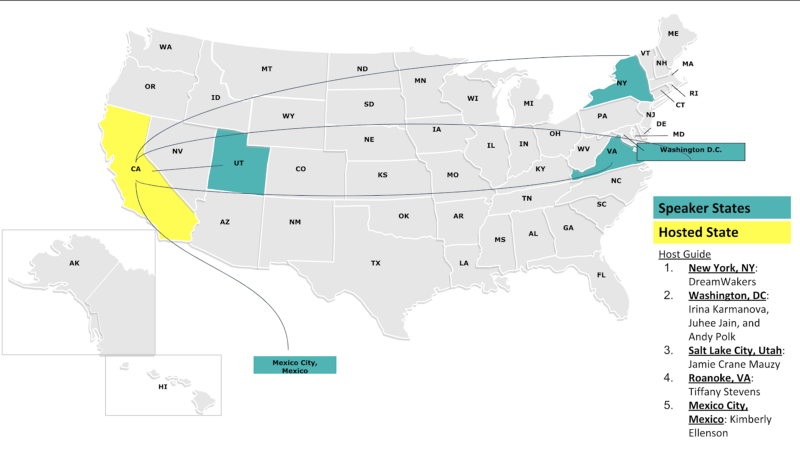
For example, earlier this month the #DreamTeam and I hosted a Career Fair of the Future at Sierra View Elementary School in North Highlands, California, from our office in midtown Manhattan. School counselor Katrina Bennett Brown wrote in her DreamWakers application that she was looking for diverse and dynamic professional role models who could help her students “explore college and career pathways” while speaking to how graduates could really plan to connect their “post-secondary education with a career that can give you the life you want.”
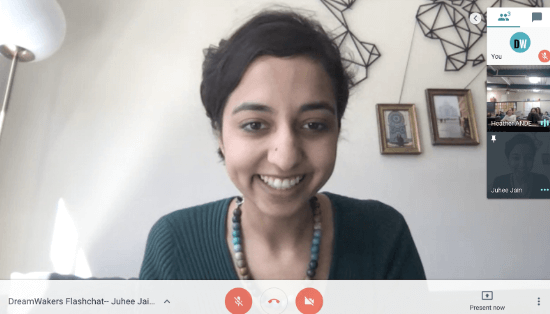
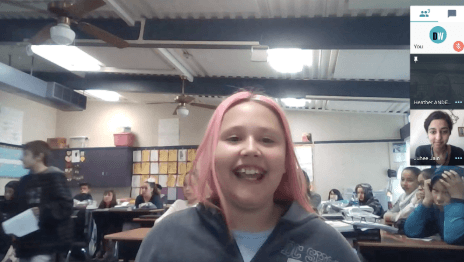
We set to work. In one afternoon, DreamWakers connected Ms. Bennett-Brown’s students to six exceptional professionals across five cities, including Washington, D.C.; Roanoke, Virginia; Salt Lake City, Utah; and even Mexico City, Mexico. The DreamWakers speakers who participated in this Career Fair include:
- Andy Polk, Senior Vice President, Footwear Distributors and Retailers of America
- Irina Karmanova, Public Affairs Specialist, US Department of State
- Jamie Crane-Mauzy, CEO, MoCrazy Strong
- Juhee Jain, Product Design Lead, mHelpDesk
- Kimberly Ellenson, General Medicine Marketing Senior Manager, Amgen
- Tiffany Stevens, Freelance Journalist
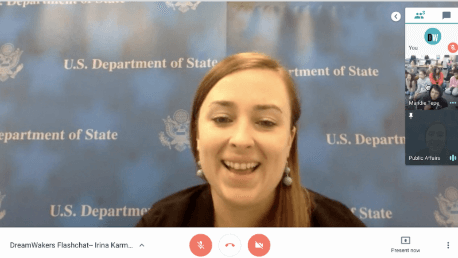
Following the virtual career fair, Ms. Bennett-Brown said: “The connection to careers that we have only talked about theoretically was invaluable. As I continue to educate my students about the breadth of options available to them, the DreamWakers Flashchats provide something concrete and visible to my students.”
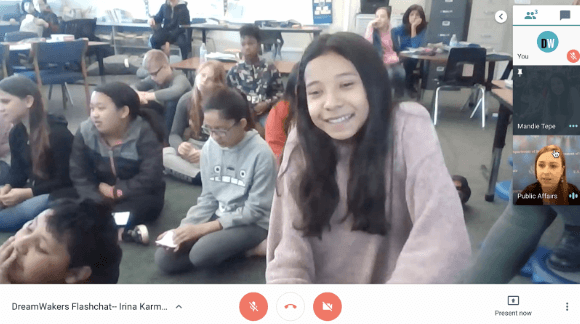
Below are a few tidbits of advice from the role models that spoke to me as a college student, and I hope resonated with Ms. Bennett-Brown’s scholars as well (which, based on their 5/5 survey rating about this experience, I think did!)
If you are an educator interested in bringing DreamWakers’ career role models into your classroom, or even hosting a Career Fair of the Future, please apply to become a #DreamTeacher today.
If you are a busy professional who would like to give back without leaving the office, please apply to become a #DreamSpeaker today.
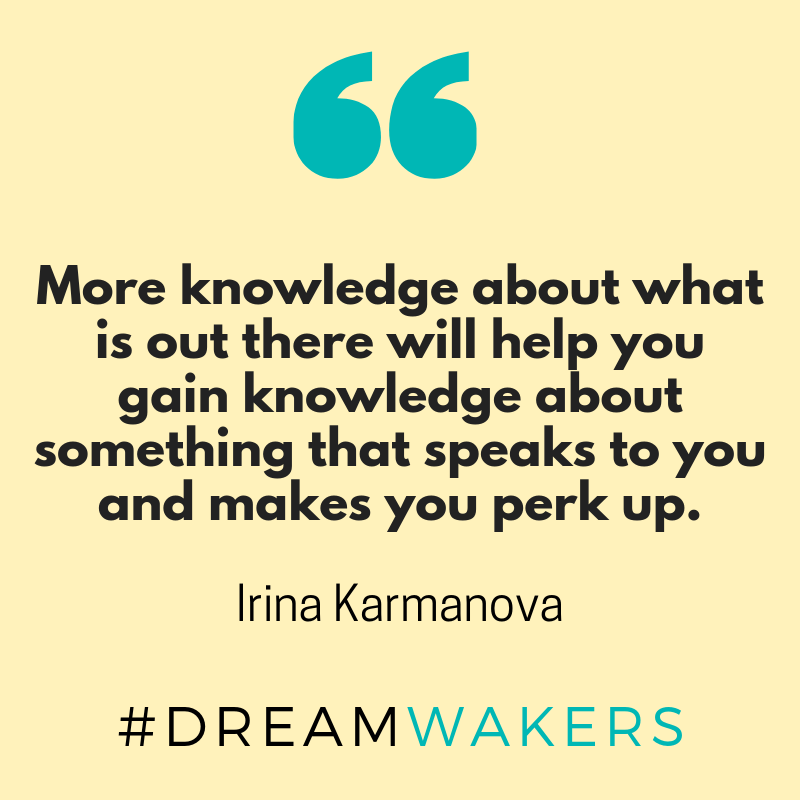
Be open to learning about careers that you do not know about yet. My advice to you is to learn as much as you can about different possibilities. Ask questions to your friends, your parent’s friends, all resources are available to you, go online, and maybe take a quiz about what kind of careers are suited for someone who is more extroverted or introverted. More knowledge about what is out there will help you gain knowledge about something that speaks to you and makes you perk up.
-Irina Karmanova, Public Affairs Specialist, US Department of State
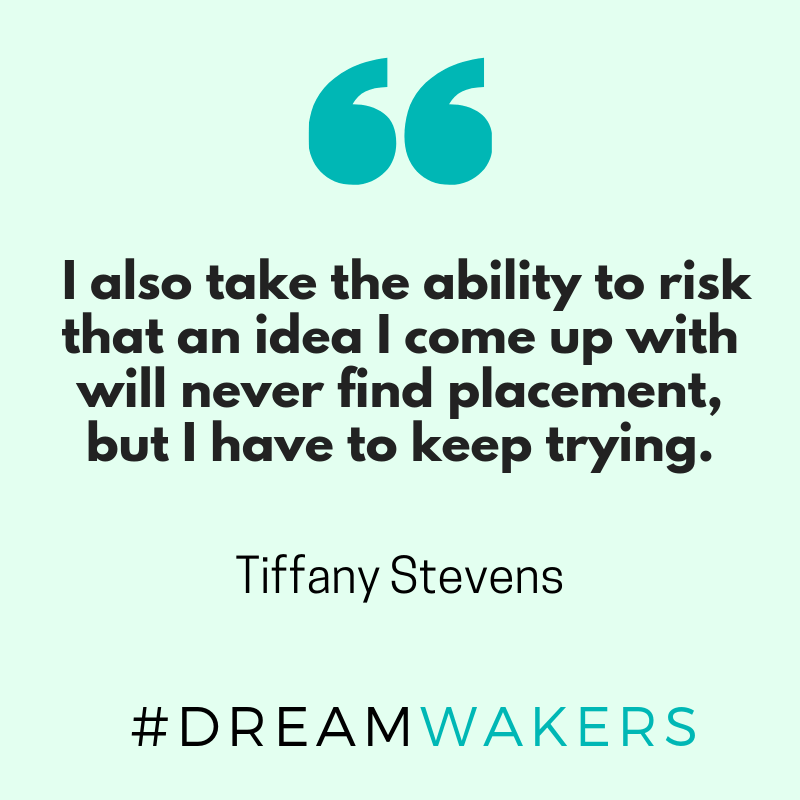
Sometimes I will pitch a story to an editor that I have worked with before and they’ll cite that the story is not right for them, but if I send it to a different editor they’ll want it for their publication. If I just stuck with that one rejection…then I wouldn’t have ever been able to write it at all. So sometimes I have to try multiple times before I can write the story that I want to which takes a lot of confidence and I also take the ability to risk that an idea I come up with will never find a placement, but I have to keep trying.
–Tiffany Stevens, Freelance Journalist
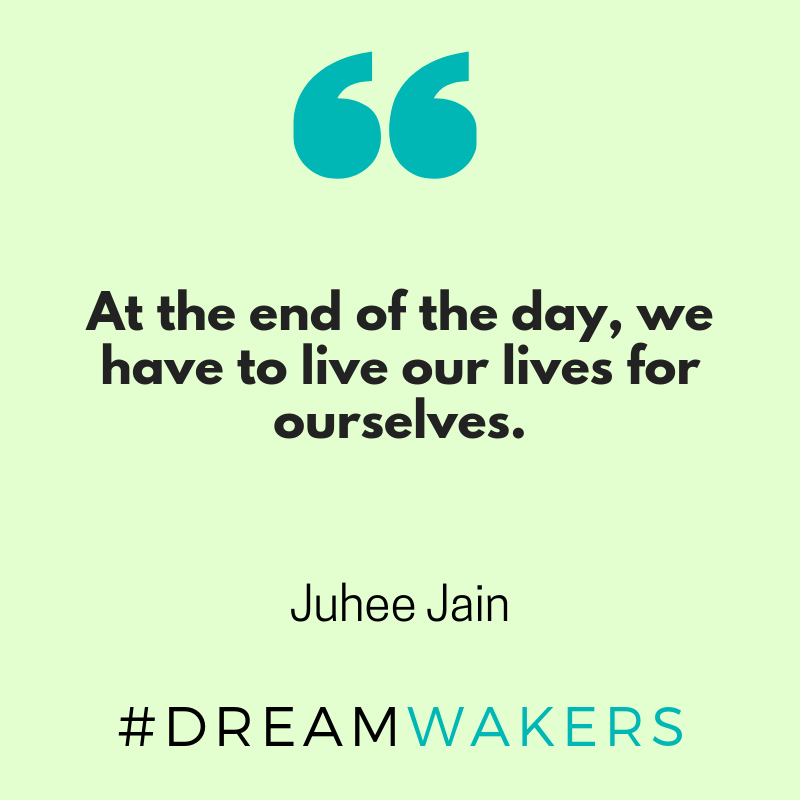
If I could tell my old self anything, I would probably say that I should have had a little bit more confidence in myself. It took me a long time to gain that… because there will always be people that tell you that you cannot do something, ‘you know, design isn’t a real job.’ I wish I would have gone more all in earlier. At the end of the day, we have to live our lives for ourselves.
–Juhee Jain, Product Design Lead, mHelpDesk
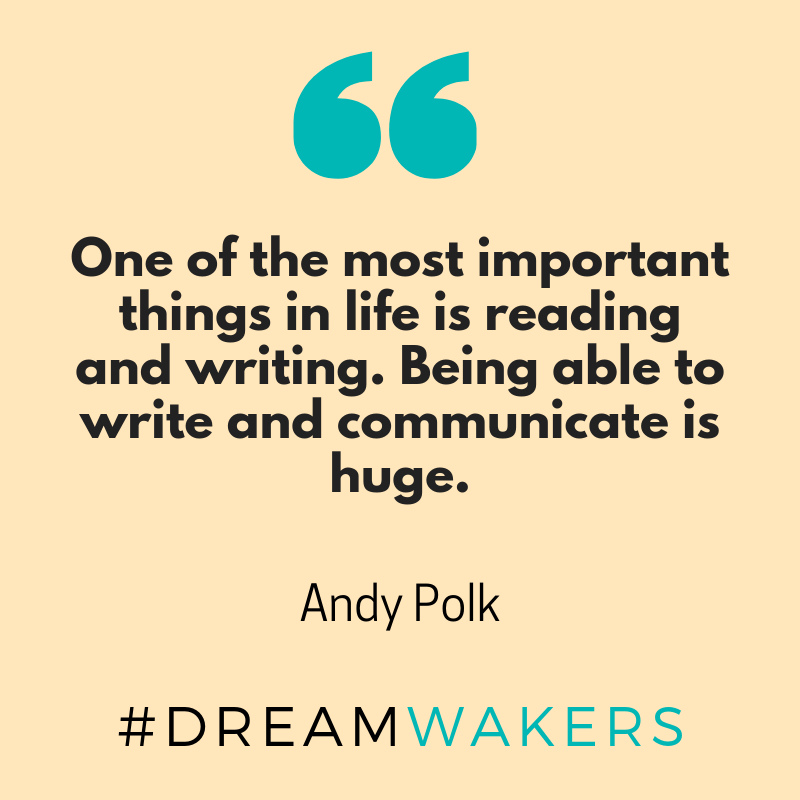
One of the most important things in life is reading and writing. Being able to write and communicate is huge. One of the most important things in our world today is communicating and making sure when you’re talking with your friends or talking to your family, that you’re communicating in a way that they understand.
–Andy Polk, Senior Vice President, Footwear Distributors and Retailers of America
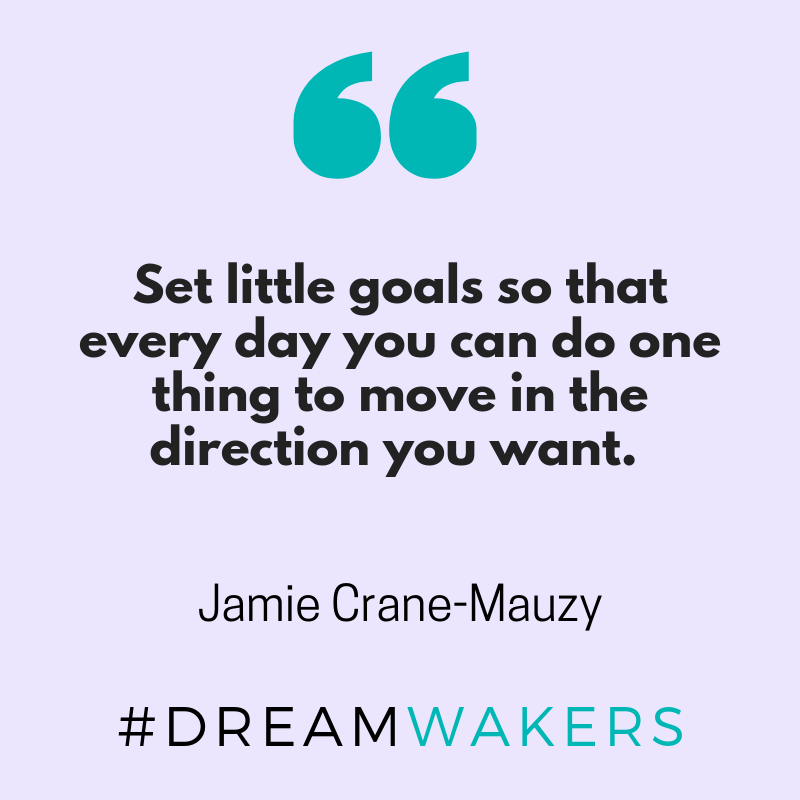
I doubt myself all the time and I doubt all of these little things in my life, and in my career. I have ideas in my mind of places I want to go, things I want to do and when I have these ideas to get there, it’s challenging. Every time you climb a mountain and you get to the top, all you see is another mountain to climb and you’ll wonder if you’re able to do it. Something I learned in my recovery… is when you have doubts, instead of setting big goals that may make you doubt yourself, set little goals so that every day you can do one thing to move in the direction you want.
–Jamie Crane-Mauzy, CEO, MoCrazy Strong
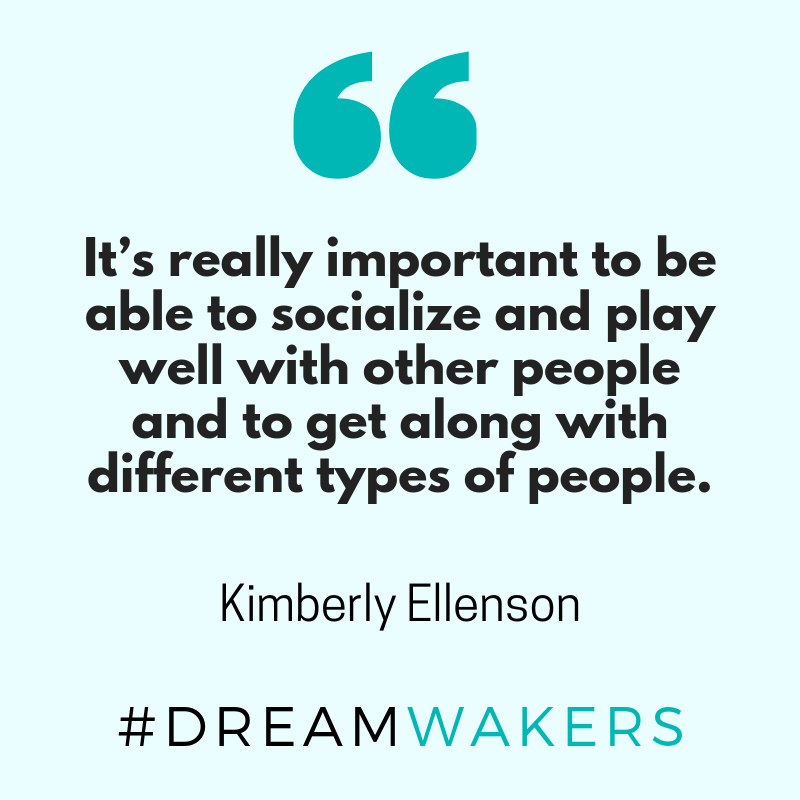
It’s really important to be able to socialize and play well with other people and to get along with different types of people. So the rules that apply in the classroom are rules that apply every day, you want to be nice to each other, you want to be able to work together, support each other, so everything that you are learning in the classroom is going to be the same no matter where you go.
–Kimberly Ellenson, General Medicine Marketing Senior Manager, Amgen
We would like to extend a special thank you to our #DreamEducators and #DreamSpeakers: without you, this would not be possible. Thank you, Gina Ripley, Cindy Williams, Grey Allen, Heather Anderson, and Mandie Tepe!
Written by Divine Life Williams, DreamWakers Social Media and Marketing Intern


